Articles
Theme
English language body
BRAL | An urban movement for Brussels
Place du samedi 13
1000 Brussels
T: 02 217 56 33
Bank account nr.: BE74 5230 8083 3007
.embed-container { position: relative; padding-bottom: 56.25%; height: 0; overflow: hidden; max-width: 100%; } .embed-container iframe, .embed-container object, .embed-container embed { position: absolute; top: 0; left: 0; width: 100%; height: 100%; }
Get in touch with one of our staffmembers :
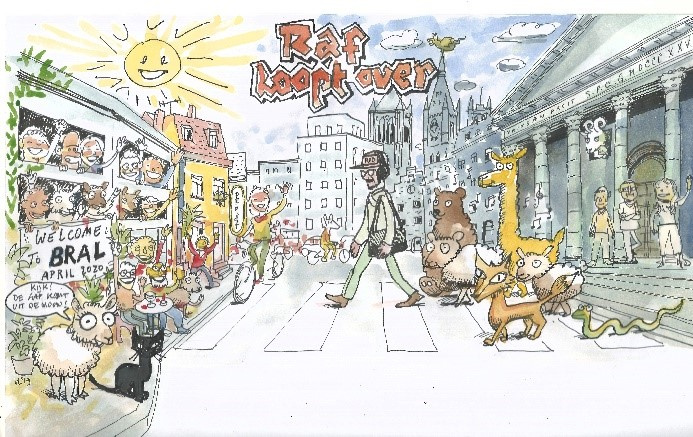
Raf Pauly
Cordinator
+32 487 31 94 20
raf[a]bral.brussels
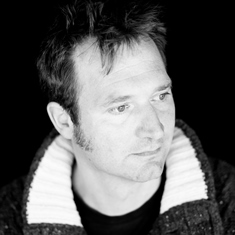
Steyn Van Assche
Urban planning
+32 498 13 25 86
steyn[at]bral.brussels
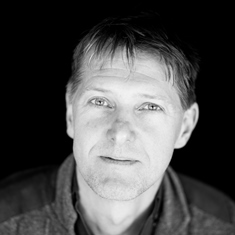
Piet Van Meerbeek
Citizen participation
+32 478 99 97 07
piet[at]bral.brussels
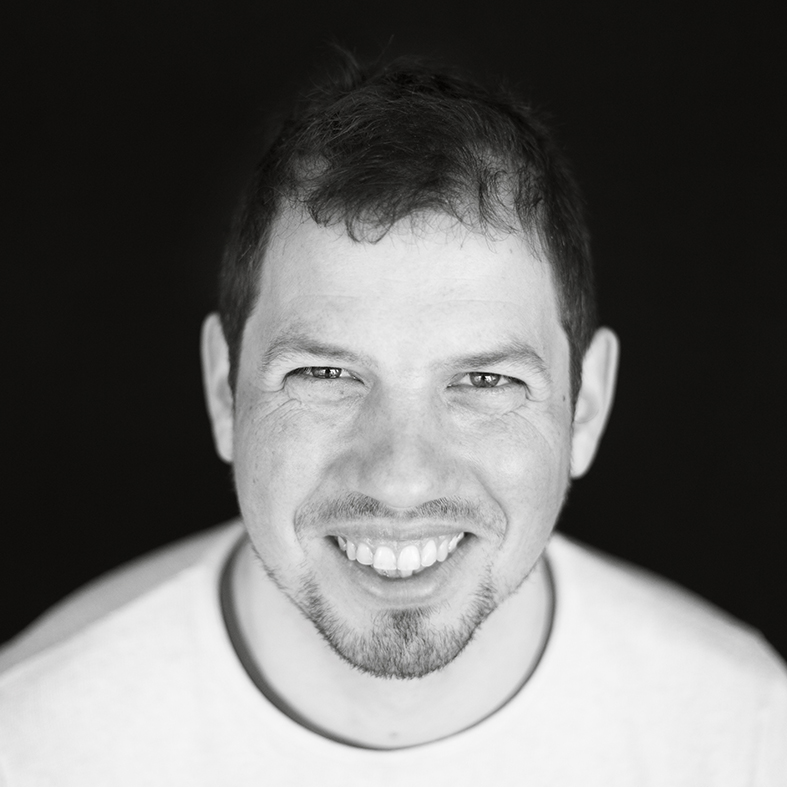
Tim Cassiers
Mobility & air quality
+32 476 44 92 23
tim[at]bral.brussels
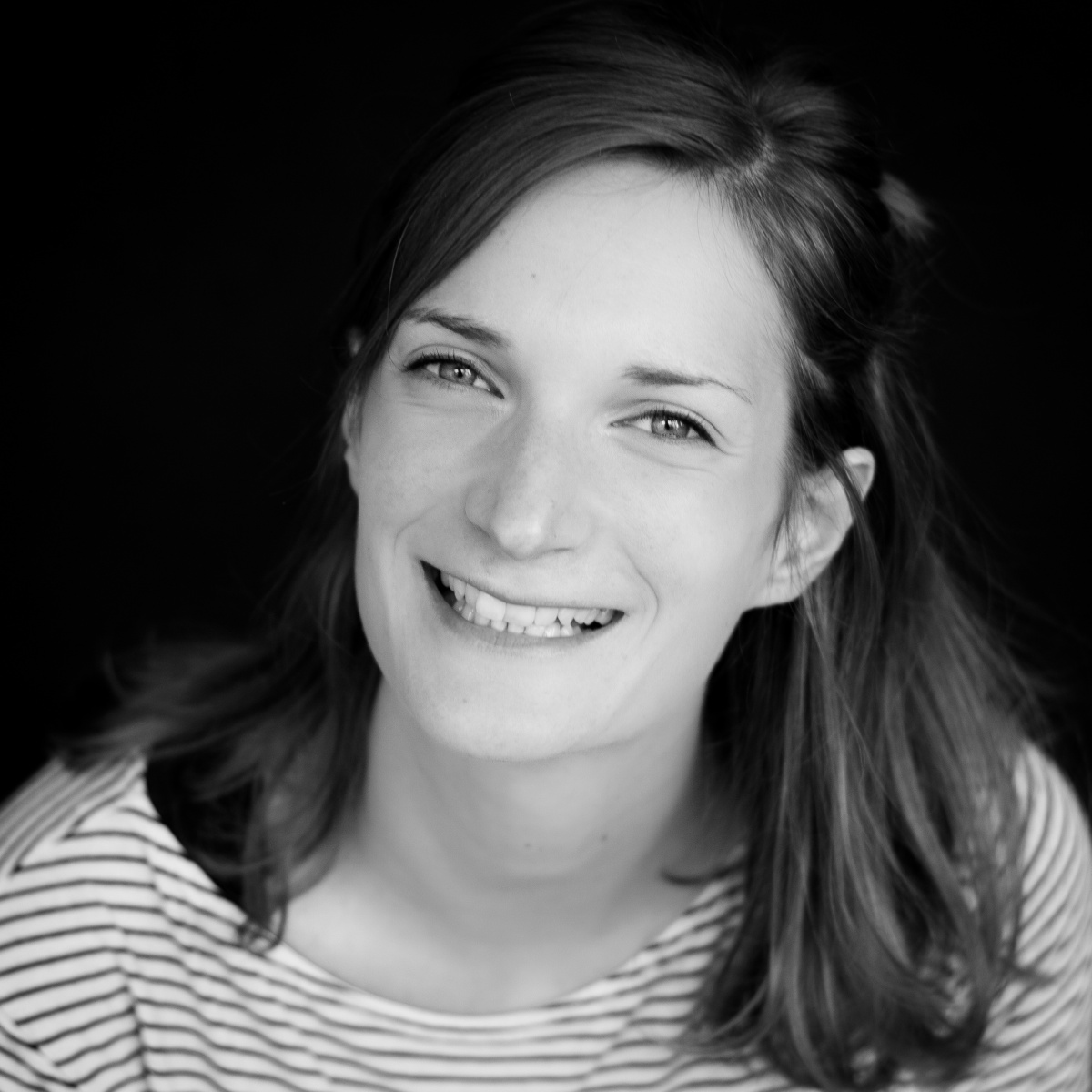
FlorenceLepoudre
Mobility
+32 472 78 07 72
florence[at]bral.brussels

Maya Maes
Communication
+32 499 90 86 97
maya[at]bral.brussels
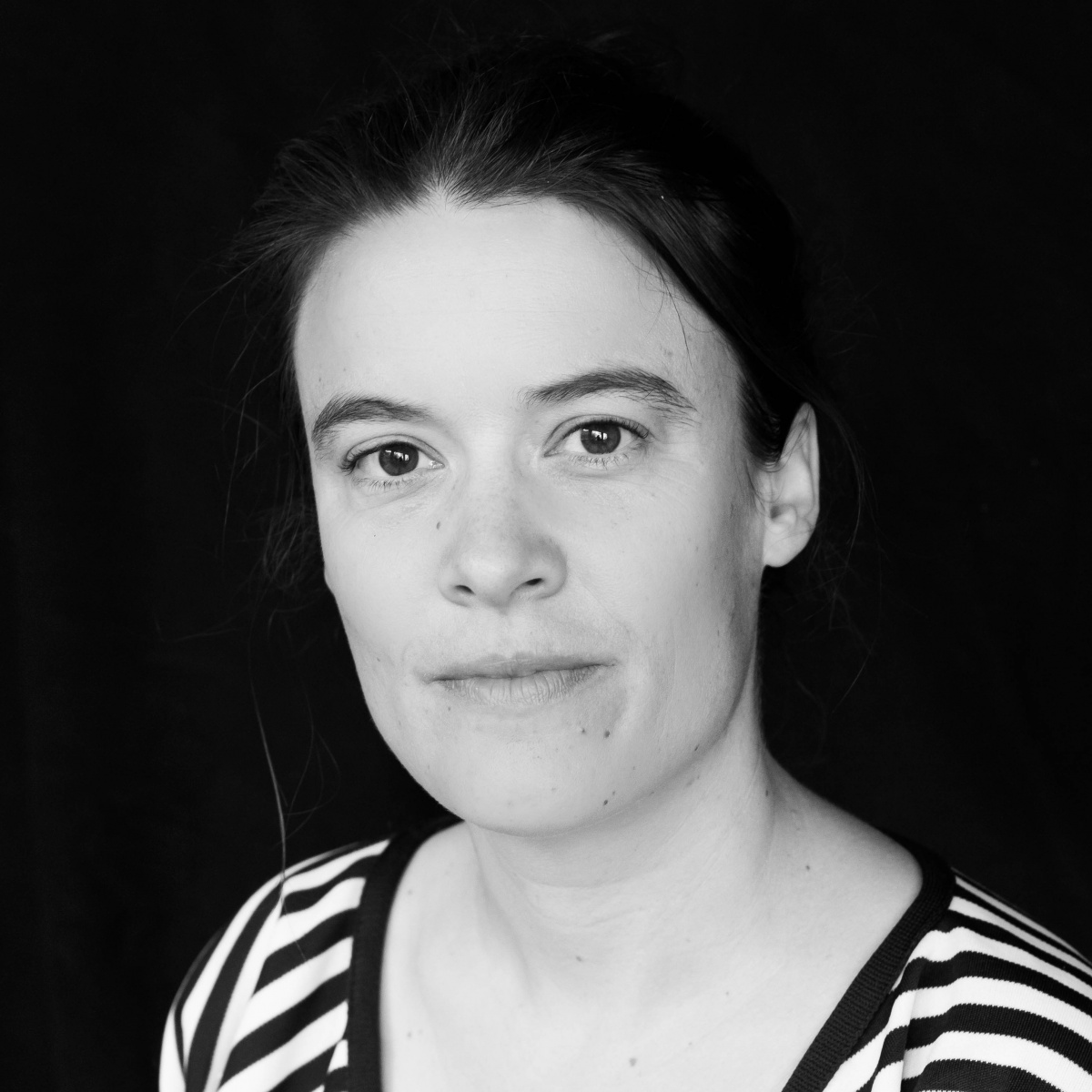
Marie Couteaux
Urban planning
+32 493 27 03 11
marie[at]bral.brussels
Ingrid Dujardin
Accounting & Administration
ingrid[at]bral.brussels
BRAL is a city movement striving to make Brussels sustainable.
Along with our members and partners we want to build an environmentally friendly, affordable and solidary city.
BRAL organises actions, lobbies, supports citizens' initiatives and provides advice to the authorities. Our priorities today are : better air quality, an economy that is both green and social, and an efficient city development with room for participation.
We work in the Brussels metropolitan region, in all its social and cultural diversity.
The Brussels Council for the Environment (Bral vzw) wants to involve expats in Brussels more closely in the urban planning decision-making in Brussels. For years, BRAL as a critical Brussels NGO has been providing the necessary up-to-date information about public inquiries and consultation committees on its website in Dutch. From today, and not by chance at the beginning of the European Year of the Citizen, that tool is also available in French and English.
Via the tool, you will be able to find background information, practical details and a selection of large and small current applications for permits in Brussels.
In 2013, 20 years have passed since European citizenship originated. The EU treaties state that each citizen in the Union is entitled to certain rights, including among others the right to free travel and establishment in other member states. In these treaties, the EU citizens obtained the right to vote and be a candidate in European and local elections.
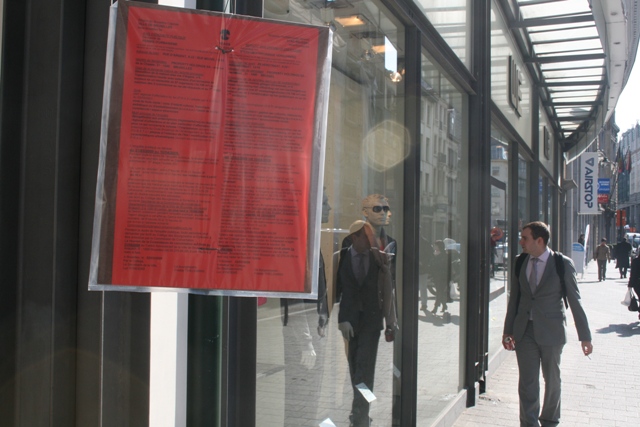
It is no public secret that the citizens in the EU are often not aware of these rights. “And the same is true for the ten thousands of ‘expats’ living and working in Brussels. However, their involvement in the urban planning development of our capital is required”, according to Hilde Geens from Bral. She has been following the urban planning dossiers in the European Quarter in Brussels for decades. “In the neighbourhoods around the European institutions, the local expertise and interest of these residents could bring a high added value for a variety of reasons. The neighbourhood committees, which are active in the Leopold Quarter, have been searching for some time for ways to involve their EU neighbours in their actions. This trilingual tool is of course no panacea, but it will lower the threshold to participating in the Brussels’ decision-making.”
In future, the Bral website will provide detailed information in three languages (Dutch/FR/ENG) about how and where you will be able to participate in a public inquiry, in which way to best notify your objections to the policy-makers, and how to draft a notice of opposition. A click-through map of Brussels will take you also to all public inquiries in the 19 municipalities of Brussels as well as to Bral’s critical selection of public inquiries. The translations have been carried out with the support of the King Baudouin Foundation and the National Lottery.
By means of this trilingual tool, Bral hopes that it will also be able to reach other non-Dutch speaking residents of Brussels. According to Geens “The classical Dutch speaking or even bilingual residents’ committees no longer exist in Brussels”. “Groups of residents respond increasingly to reality and they openly play the international card. In practice, this often means also multi-lingual communication. We would like to help them out by making our expertise now available in three languages.”
In the spring of 2013, BRAL will also publish the trilingual publication ‘Battle strategies – actions by inhabitants of the European Quarter in Brussels – from 1986 until the present’.
FIND THE TOOL HERE: PUBLIC INQUIRIES IN BRUSSELS
Contact : Hilde Geens | Bral vzw // www.bralvzw.be // staff member urban planning and Europe // Place du Samedi 13 – 1000 Brussels | T 02 217 56 33 |
Would you like to help build a sustainable Brussels in a politically independent way ? Are you interested as an individual to join BRAL, or are you a member of a citizens' committee, group or organisation in or around Brussels ?
In that case, do join BRAL as a member! You will be invited to engaging debates and BRAL actions. We will support you in your undertakings to improve Brussels. And of course you will receive our BRAL Publications and our BRAL Newsletter.
25 euros per year
Bank transfer to account BE74 5230 8083 3007, reference 'MEMBERSHIP FEE + name and/or organisation'
Would you like more info on the matter? Do not hesitate to send an email to christiaan[at]bral.brussels
Hilde Geens (°1953) is senior staff member urban planning at BRAL. She has been working since the early eighties on the ‘European dossier’ and was deeply involved in all initiatives and actions described in this publication. To this day she follows closely the overall Brussels planning processes, and in particular the developments in the European Quarter.
The publication "Community Organisation in the European Quarter in Brussels - Strategies for struggle - from 1986 until today" is available in 3 languages (English, French, Dutch) and can be downloaded here.
You think BRAL has an important mission and you want to support us ? Make a donation to help us in our fight for a sustainable Brussels ! We will keep you informed through our publications and newsletter.
45% of any donation of 40 euros and more can be deducted from your taxes. For example, if you donate 40 euros to Bral, it will only cost you 22 euros: the tax relief covers the rest. A donation of 60 euros will cost you 33, 80 euros for Bral cost you 44, etc.
Would you be willing to support Bral in the long run? Ask your bank to make a monthly transfer. Even only 5 euros a month make a welcome donation of 60 in a year, and you will be entitled to a tax relief statement.
Bank transfer to account BE74 5230 8083 3007, reference 'DONATION'
You will have seen them in the Brussels streets, the red posters with plenty of small print on them. Such posters inform passers-by of projects and building plans in or around that particular street. During a limited period of time (the 'public enquiry') you can consult the details of the project or plan, state your opinion or lodge a complaint.
PUBLIC INQUIRIES: FAQ
In our FAQ reproduced here you will find all the necessary background information to the system of public enquiries. It explains ''What is a public enquiry'', ''How and where can the files be consulted ?'', ''How do I state my opinion ?'', ''What is the most efficient manner to react ?''.
Do get in touch with BRAL if you have any questions.
BACKGROUND
With this overview, Bral keeps you up-to-date about the origine and background of this unique system.
Do you want a better air quality in Brussels? Do you dream of a city with a better quality of life for everyone? Does the creativity of the Bruxellois entice you too? Then BRAL, an urban movement for Brussels might be something for you.
Support us
Become A member
What is Bral?
Bral is a city movement striving to make Brussels sustainable. Along with our members and partners, we want to build an environmentally friendly, affordable and solidary city. Bral organises actions, lobbies, supports citizens' initiatives and provides advice to the authorities. We work in the Brussels metropolitan region, in all its social and cultural diversity.
Our priorities today are: better air quality, an economy that is both green and social, and an efficient city development with room for participation.
What exactly does it mean, a subscription to the BRAL publications?
- 4 thematical publications per year in your mailbox
- Current topics, subject to a critical and profound BRAL-analysis
- 30 euro/year
All you need to do, is send us a bank transfer to our Triodos-account BE62 0012 1549 3761, with reference 'SUBSCRIPTION'.
* Of course, as a member of BRAL, you don’t have to subscribe. Members receive our publications as a part of the benefits of their membership. Interested to become a member? Just do it.
Members of BRAL (groups/associations) (01/2020)
- Beursschouwburg (Tom Bonte)
- Beweging B-H-V
- Brukselbinnenstebuiten vzw (Anne Brumagne en Bert De Bisschop)
- Brussel Natuur vzw (Ninanne Mario)
- Buurthuis Bonnevie vzw (Lieven Monserez)
- Buurtwinkel Aneessens (Bart Van de Ven)
- Corvia (Mathilde Pelsers)
- Cycloperativa (Yanick d'Otreppe)
- De Groene Wandeling Neder-Over-Heembeek vzw (Benoît Elleboudt)
- Dewey asbl (Mathieu Simonson)
- EUGC (Nijs Frans, Carolien Zandbergen)
- Fietsersbond vzw - Brussel (Wies Callens )
- G.A.Q. vzw – Brussel Noord-Oostwijk (Christian Dekeyser)
- GEBOV/GUTIB (Bernard De Coster)
- GC De Markten (Isolde Boutsen)
- GRACQ (Willems Aurélie)
- Maritiemcomité - Havenwijk (Rose-May Liebaert)
- Natuurpunt vzw - Brussel (De Backer Toby)
- Ploef! Indira Osumba
- Transports Collectifs Net (Olivier Servais)
- Vereniging Leopoldswijk en Europese wijk van Brussel vzw (Renée Coen)
- Wijkcomité Neerpede blijft! (Johan Van Waeyenberge en Steven De Ridder)
- Bauwens Ginette
- Christiaens Etienne
- De Corte Stef
- De Raeve Luk
- Deboosere Patrick
- Demol Pierre
- Eelens Hans
- Goubau Nicolas
- Goyens-Le Maire Christine
- Hollander Sarah
- Kaviani Cyriel
- Laporta Philippe
- Lootens Tom
- Martens Albert
- Muyldermans Laura
- Pauly Raf
- Schmelz Bertrand
- Stiénon Fabien
- Timmermans Thierry
- Van Assche Anton
- Van Den Houte Kriestien
- Van der Smissen Gaëtan
- Van Laethem Mathieu
- Van Reusel Hanne
- Van Steenberghe Jean-Pol
- Vanhamme Georges
- Vermeulen Sofie
- Willems Gudrun
Bruxelles selon le BRAL
La structure (financière)
Le rôle du BRAL
BRAL a eu 40 ans en 2014
RED POSTER
[collapse collapsed]
What does the red poster look like?
A red poster is a placard stating “notice of a public inquiry”. It includes all relevant data, in Dutch and in French in black letters on a red background.
The presentation of the poster is set down in law and can be found in the executive order about public inquiries and the special rules of disclosure.
[/collapse collapsed]
[collapse collapsed]
Which data will be included on a red poster?
The poster is in two languages (French/Dutch) with always the same basic text as well as a number of additional data to be filled in by the commune, depending on the project. You will find the identity of the applicant, the address of the project, the reason for the public inquiry, start and closing date of the public inquiry, date and location for the meeting of the consultation committee, and also the location and hours for consulting the file.
The language used on a red poster is concise and schematic, using abbreviations and specific terminology. If you have questions, your commune (or Bral) could be of assistance.
Since July 2010, posters describing projects of a particular size also need to include a 3D image of the project and the surrounding buildings. However, the application of this order leaves much to be desired.
[/collapse collapsed]
[collapse collapsed]
Where and when will the red poster be put up?
A red poster will be put up at the address of the relevant property or plot of land and at a visible location in the town hall. For each application, at least 3 red posters are to be affixed around the relevant building plot or property: 1 on the actual address, and 1 on each street corner of the building block, in which the property or building plot is located. They are usually found at eye level on posts for traffic and road signs.
The red posters need to be put up at least 48 hours before the beginning of the public inquiry and they need to remain visible and legible throughout the entire duration of the public inquiry. They are often laminated to ensure that they will remain legible.
[/collapse collapsed]
PUBLIC INQUIRY
[collapse collapsed]
What is the duration of a public inquiry?
The duration of a public inquiry depends on the type of project and is always expressed in a number of calendar days.
According to the general rule, a public inquiry concerning town planning permits and certificates lasts for 15 calendar days. Therefore, that does not leave much time to study the file and to react. Longer terms are reserved for the more complex town planning plans and regulations. At any rate, at least half of the public inquiry should take place outside the summer-, Christmas- or Easter holidays.
- Town planning permits and certificates: 15 days
- Permits for the construction or modification of traffic routes: 30 days
- Specifications for an impact study: 15 days
- Town planning permit including an impact study: 30 days
- Draft of a Particular Zoning Plan: 30 days
- Proposal for expropriation: 30 days
- Draft for a municipal or regional regulation: 30 days
- Draft for a Municipal Development Plan (PCD/GemOP): 45 days
- Draft for a Regional Development Plan (PRD/GewOP) and Regional Land Use Plan (PRAS/GBP): 60 days
[/collapse collapsed]
[collapse collapsed]
Which projects are submitted to a public inquiry?
The communes in Brussels organise a public inquiry into all the plans and projects described in What is the duration of a public inquiry.
For each town planning permit or certificate, the zone in which the project is located according to the Regional Land Use Plan (PRAS/GBP) is taken into consideration. Different provisions apply to each zone on the Regional Land Use Plan. A public inquiry will only be organised if those provisions provide for it, usually by means of exceptions. The size or the type of the project is therefore in itself no criterion for a public inquiry.
This is why the “reason for the inquiry” on the red posters is always stated in technical jargon and why they often refer to the Land Use Plans. You can find the rules of the Regional Land Use Plan via the following website (only in Dutch and French).
[The same website provides more useful legal information under ‘stedenbouwkundige vergunning or permis d’urbanisme.]
[/collapse collapsed]
[collapse collapsed]
When does a public inquiry take place?
The communes organise the public inquiry for the projects on their territory. The timing for the inquiry has been laid down in the Brussels Town Planning Code (CoBAT/BWRO) and depends among other things on the complexity of the file.
It is an important rule of thumb that half of the term set aside for a public inquiry should fall outside the school holiday periods (summer-, Easter- and Christmas holidays).
[/collapse collapsed]
[collapse collapsed]
Which public inquiries are taken place at present in your commune?
The websites of most of the communes contain a list of the current public inquiries. Ganshoren and Vorst/Forest are the exceptions. However, beware, also in the other communes the lists are not always up to date.
On the website of Stedenbouw.brussels / Urbanisme.brussels you find links to the current public inqueries of the different communes.
On our own website you will find our BRALSELECTION. This list contains our own subjective selection of public inquiries in all 19 communes in the Brussels-Capital Region, based on the following criteria:
- Inquiries that are of more than purely local interest,
- Inquiries that strike us for whatever reason or
- Inquiries that we follow-up anyway in our daily operations.
[/collapse collapsed]
[collapse collapsed]
CONSULTATION OF FILES
[collapse collapsed]
Where and when can you consult a file?
On the red poster you will find the contact data of the Town Planning Service of your commune and the opening hours of the service where you can consult the plans.
The file of a current public inquiry can be consulted at the Town Planning Service, and once a week this can be done outside normal office hours. For at least one half day each week, the ‘competent official’ can provide explanations. This is the person who is most familiar with the file and who is best placed to answer your questions.
If you wish further explanations, it is advisable to telephone the service prior to your visit to make an appointment with the relevant person. This is particularly recommended if you want to consult the file, during that one evening per week that the town hall is required to be open. Do not worry about asking ‘silly questions’. The provision of public services is the most important task of the local authorities, and the competent is official is there to help you.
[/collapse collapsed]
[collapse collapsed]
Which documents will be found in a file?
The content of an application file for a town planning permit or a town planning certificate has been laid down in law and can be consulted on the following website:
For local residents the most interesting documents in the file will be the following:
- A copy of the red poster. This will give a concise summary of all the data relevant to the application.
- A completed standard application form for a town planning permit or a town planning certificate. This application form contains among others: figure data, both about the existing situation as about the design: surface of the different intended uses of the various floors, occupancy rate, number of dwellings, housing density, etc.)
- Some photographs of the existing situation of the property or building plot and its immediate environment.
- A synthesis document in A-3 format with the most important plans: the layout plan, the vertical elevations, the cross-sections and the building profiles.
- If necessary an impact report or impact study.
[/collapse collapsed]
[collapse collapsed]
Which documents are you allowed to copy?
You should be able to obtain a copy of the following documents, see preceding paragraph for an explanation:
- The red poster
- The completed standard application form
- The synthesis document
- Previously issued permits or certificates with corresponding advice. A town planning permit or certificate that has been issued or refused is a public document, containing the opinion of the competent official, which in its turn restates the advice of the consultation committee.
Whether or not documents may be copied for free varies greatly from commune to commune. Some communes will not charge you, if you explain that you are acting on behalf of the local residents.
In general, the principle of freedom of information applies. The rules prescribe that you may apply for copies or extracts of documents both orally and in writing from the town council. If these documents are not handed over to you immediately, they will be ‘made available’ to you within 8 working days.
In practice, this means that you can pick up the requested documents in the town hall. In view of the fact, that most public inquiries last 15 calendar days (=11 working days), you can deduct from this that after a waiting period of 8 working days the public inquiry as well as your chance to react have often passed. Therefore, negotiate in order to obtain the documents immediately. Let us know when you are dealing with an ‘awkward’ commune.
Unfortunately, it is not (yet) mandatory for the communes to provide digital copies of files submitted to a public inquiry, but you can always ask, just in case.
[/collapse collapsed]
VOICE YOUR OPINION
[collapse collapsed]
How can you voice your opinion?
There are two moments when you may formulate objections and remarks:
During the duration of the public inquiry:
- Orally: for at least one half day each week you may pass on your comments orally to the competent official. In many cases, this does not happen in an off-hand manner and you will need to request it specifically. In that case, the official will note down your remarks in a report that you will sign. Request a copy of this document. Sometimes, you will be able to indicate your remarks on a specifically formulated document.
- In writing: You may address your remarks in writing to the Council of Mayor and Aldermen before the end of the public inquiry. These remarks will then be included in the concluding minutes of the public inquiry. More and more frequently, you may send your remarks via e-mail. If that is the case it is mentioned on the red poster.
Please note: All remarks and objections that have been made both orally and in writing during the public inquiry need to be added to the concluding minutes of the public inquiry. Within 8 days after the end of the public inquiry, the Council of Mayor and Aldermen will write these minutes. The whole file together with a first analysis by the responsible official of the town hall will be transferred to all the members of the consultation committee.
During the meeting of the consultation committee:
If you want to explain your comments verbally, then you must address a written request at the Council of Mayor and Aldermen during the period of public review.
When you have requested to be present, you will be able to explain your remarks orally during the meeting of the consultation committee. You are allowed the assistance of two ‘advisors’. Anyone may be your advisor and residents, commuters or visitors know their neighbourhood best. There is certainly no need to consult a lawyer.
[/collapse collapsed]
[collapse collapsed]
How do you request to be present to the consultation committee?
During the public inquiry, you may address a request in writing to the Council of Mayor and Aldermen to be present at the consultation committee. More and more often, this may also be done via e-mail, see the red poster. In that letter / e-mail you do not need to state the reasons why you wish to be heard. You do not need to declare an interest and you do not even have to be an inhabitant of the commune or the region. However, do make clear in your request that you want 'to be heard' by the consultation committee. You can elaborate orally on the arguments about the case in question during the meeting. It is recommended to send this letter in one of the two official languages, either Dutch or French.
According to the regulations, you will be ‘called’ to appear before the consultation committee at least 8 days before the meeting; usually this is done through the post, sometimes via e-mail. Sometimes the agenda of the consultation committee is published online on the website of the commune. If you have not received an invitation three days before the meeting, you are advised to make inquiries at the town planning service of your commune.
[/collapse collapsed]
[collapse collapsed]
What is the most efficient strategy?
We cannot propose a ready-made ‘most efficient strategy’. After all, the consultation committee does not have clear and objective criteria on which it must base its advice.
However, this should not be a cause for discouragement, but rather an incentive to experiment creatively with the possibilities listed below. We know of numerous successful experiences.
Technicians and politicians will take the definitive decision about a plan or project. A good balance between the points listed below will determine the impact on that decision:
1. The nature and strength of the arguments
All kinds of arguments are allowed: Legal-administrative, technical town-planning, socio-economic, emotional, symbolic, etc. The consultative committee does not question your arguments. Neither does it need to deal with each remark and objection separately and respond by either accepting them or by giving grounds for refuting them.
Although all arguments are valuable, experience has taught us that arguments on legal grounds constitute a good basis. The authorities in Brussels all too often consider spatial planning from a legal point of view rather than from a global creative vision on the spatial needs, qualities and possibilities. Therefore, we recommend having a basic knowledge of the legal framework of the Brussels’ Town Planning.
2. The number of people that share a point of view
An individual reaction offers less scope to make an impact, unless you are an influential person or an eloquent speaker.
A collective reaction is more powerful. Try to collect many people and convince them of your point of view and arguments. You stand a better chance of influencing a plan or project, when you carefully prepare with as many partners as possible for the requirements of an intervention at the consultation committee.
Neighbourhood committee meetings offer the ideal opportunity to prepare those interventions. In the case of smaller projects on a local level, the influence of the residents on the advice of the consultation committee is generally quite considerable. The support of recognised interest groups, politicians, recognised experts etc. will underline the force of your demands.
3. dditional ways of lending support to objections
The options are a petition, a happening, a press release or a press conference, etc.
Try to use a full spectrum of actions. A petition with many signatures annexed to a letter has the value of one objection, but may exert a lot of political pressure. If the letter included with the petition states explicitly that all signatories to the petition request to be present at the consultation committee, then they will all be called upon. Sometimes, the number of people may the deciding factor, but ensure that everyone has something to contribute. A press action may influence public opinion and that may have repercussions on the political decision-making and the opinion of the members of the consultation committee.
4. The form of the objection in proportion to the nature and size of the project
As resident, commuter or visitor of the neighbourhood, you are best placed to judge whether a project is compatible with its environment. Do try to be reasonable, though, and take into account the context.
In the case of smaller projects limited to the neighbourhood, the influence of the residents on the advice of the consultation committee is generally fairly large. In the case of larger projects, in which public bodies and promoters often take the lead, the residents usually do not influence any positive or negative opinion. However, under the pressure of the remarks and objections, a revision of the project may be asked for or conditions may be imposed.
5. The way in which you explain your point of view
The best way of influencing the advice of the consultation committee, is by giving an oral representation of your remarks and objections during the meeting of the consultation committee. We have a clear impression that a written reaction on its own has less impact.
Here follow a few reminders.
Do not get caught out by being too negative in your reaction. Present a positive message and indicate the good projects in the neighbourhood as well. Make the necessary differentiations and remain constructive by making proposals for modifications, alternatives or different approaches.
See the bigger picture: do not act out of self-interest, but present points of view and arguments that are to everyone’s advantage, and that attest to a vision on the evolution in your neighbourhood.
Express your point of view and arguments clearly, but concisely. Quantity does not equal quality. Choose the right arguments purposefully and avoid referring to topics that are not relevant.
The time available to the members of the consultation committee is limited; sometimes, they need to deal with up to 20 applications a day. Therefore, be prepared for their request not to repeat information, but at the same time do not allow yourself to be intimidated.
Pay sufficient attention to a well-structured conclusion. Compose a concise note with a few points, in order to finish your argument by summing up the main points.
Do you want to find out which strategies some groups of residents in Brussels have used to put pressure on the policy? Have a look at our leaflet link naar de brochure Ook jij maakt de stad!. / Participez à la Ville
[/collapse collapsed]
[collapse collapsed]
Is it allowed to hand in written submissions during a consultation committee?
If the file at stake is complex, it can be useful to write down your points before the meeting, so as not to forget anything during your presentation. You can hand a copy of such notes to the meeting secretary, for the minutes. In the past we have seen cases where lawyers (as counsel to the initiators of the project) protest and object to such a procedure, but formally it is not forbidden. No-one from the authorities has taken a clear position on this matter so far.
[/collapse collapsed]
[collapse collapsed]
CONSULTATION COMMITTEES
[collapse collapsed]
What are the duties of a consultation committee?
The consultation committee gathers all advisory services with respect to a file together. The committee assesses the plan or project submitted to a public inquiry and then gives its opinion to the authority that will issue the permit. The opinion of the consultation committee may be in favour, in favour with conditions attached or against. The opinion is formally non-binding. In most cases, the permit issuing authority follows the opinion of the committee.
[/collapse collapsed]
[collapse collapsed]
What is the composition of the consultation committee?
The members of the consultation committee (10 in total) are representatives of the commune and the region:
- Three members are nominated by the Council of Mayor and Aldermen. The alderman for town planning usually chairs the committee.
- Four representatives of the regional administration
- Directorate Service for Spatial Planning and Housing (AATL / BROH) ;
- Directorate Town planning
- Directorate for Monuments and Landscapes
- Directorate Mobility
- A representative from the Regional Development Company Brussels (SDRB / GOMB) (citydev, toch?)
- A representative from the regional Service for the Environment (Bruxelles Environnement).
- A representative from the regional Service of Economic and Employment issues
[/collapse collapsed]
[collapse collapsed]
How does the consultation committee arrive at an opinion?
It is the intention that the members of the consultation committee arrive at a consensus. If this is not possible, the minority points of view will also be included in the opinion.
Members, who represent an institution that has submitted an application, need to abstain. This means that they do not participate in the consultation or the vote.
The consultation committee usually decides its opinion immediately after the hearing, based on the personal analysis of the file by the members prior to the meeting and the remarks that they have heard during the hearing. In the case of important files, a member may have received specific instructions about his point of view from his superiors.
The major bottleneck is the complete absence of clear criteria, to which a member of the consultation committee may refer to give a specific opinion. There is no explicit guideline. The Regional Land Use Plan (PRAS / GBP) provides some directives but these are very general in nature and open to interpretation. Until today, these rules have not been specified.
An opinion may be in favour, in favour with conditions attached or negative. Sometimes the consultation committee imposes conditions, which the revised plan/project needs to satisfy in order to be carried out. In that case, the applicant is offered the opportunity to modify his project according to those conditions. When ‘major modifications’ are required, a new public inquiry will be held; otherwise all that is required is a new opinion by the consultation committee. The consultation committee decides whether a new public inquiry is needed.
[/collapse collapsed]
[collapse collapsed]
Is the opinion of the consultation committee binding?
As a general rule the opinion of the consultation committee is not binding for the licensing authority.
But in some cases the opinion is a decisive element.
The Council of Mayor and Aldermen can use the opinion of the consultation committee as a permit in its own right, when an impact assessment was not mandatory and when the consultation committee produced a unanimous and positive opinion in the presence of the representative of the authority for urban planning.
If under such circumstances the opinion was unanimous and negative, this has a binding effect and hence the license will be refused by the City Council.
[/collapse collapsed]
[collapse collapsed]
In which cases will a meeting of the consultation committee be organised?
The Council of Mayor and Aldermen does not have the right to decide if and when it will organise a consultation committee for a particular project. The Brussels Code for Town Planning (CoBAT /BWRO) and the implementation decrees lay down for which projects and plans a public inquiry with the consultation committee needs to be organised. The CoBAT/BWRO also sets out that the consultation committee is to give an opinion within 30 calendar days after the conclusion of the public inquiry.
Most communes publish the dates and the agenda of the next consultation committee on their website.
[/collapse collapsed]
[collapse collapsed]
What is the procedure of a consultation committee?
The meeting of the consultation committee follows a fixed plan.
Public part: the public hearing
A recent implementation decree (May 2014) lays down which issues need to be addressed during the public part of the consultation committee.
- presentation of the project by the applicant
- explanation by the permit-issuing authority of the motivation for the public inquiry and the opinions delivered by other authorities.
- remarks and objections by those who have requested to be present / state their remarks
- possible remarks and questions by the permit-issuing authority and other members of the consultation committee.
- right of reply by the applicant
Non-public part: the consultation meeting
The members of the consultation committee deliberate behind closed doors about the opinion that they are going to issue, without the presence of the applicant or the residents. In other words, the consultation takes place between the various advisory services and it is not a real consultation with the residents. A quorum of 4 members of the consultation committee is required to issue a valid opinion. The opinion of the consultation committee needs to be a reasoned opinion, but it has no binding effect.
The consultation committee usually issues its opinion immediately after the hearing. For plans and large complex files, time pressure may cause the consultation committee to put off issuing its opinion to a later meeting. Moreover, each member is entitled to ask for a postponement. The member will need to give grounds for his request and the other members need to accept this request. A good argument is for example that insufficient clear information has been provided in the application files, and that a local inspection is required.
The opinion of the consultation committee is a public document; anyone can obtain a copy of the minutes and the opinion. Some, but certainly not all communes also will publish this information on their website.
[/collapse collapsed]
FOLLOW-UP
[collapse collapsed]
What happens after the consultation committee?
Depending on the decision of the consultation committee, various procedures may be followed.
In some cases the opinion of the consultation committee is binding (cfr Is the opinion of the consultation committee binding?)
As a general rule, the permit-issuing authority will look at the opinion of the consultation committee as one of the elements in the file.
In the case of a favourable or negative opinion, the file carries on according to the administrative procedure until the permit issuing authority takes the final decision.
If the consultation committee imposes conditions, again various procedures may be followed.
- The committee defers its opinion, and asks the applicant to modify his building plan according to the conditions imposed. The modified plan will be submitted again to the committee at a later date.
- The consultation committee issues a favourable opinion, on conditions. The permit issuing authority may then decide to issue a permit, in which these conditions have been entirely or partly included. The applicant has to ensure that the building work is carried out according to these modifications.
- Finally, the conditions imposed may be so strict that a new public inquiry needs to be organised for the modified project. This only happens very rarely.
If the consultation committee decides to defer its opinion because of time pressure or insufficient information, the opinion is issued at the next meeting.
If you wish to follow up on the file, you will have to take the required action. The fact that you have appeared during the public inquiry or in front of the consultation committee does not imply that you will be automatically invited to a possible second meeting of the consultation committee. If the consultation committee has imposed important conditions, you should ask the competent official whether a new public inquiry will be held and whether you will be invited to attend.
Depending on the application or the applicant and the location of the project, the municipal or regional authority will issue the town planning permit. Such a town planning permit whether issued or refused, is a public document that is available for consultation at the town planning service of your commune.
After the opinion of the consultation committee has been issued, the opinion of the regional competent official is often required.
But the Council of Mayor and Aldermen can use the opinion of the consultation committee as a permit in its own right, when an impact assessment was not mandatory and when the consultation committee produced a unanimous and positive opinion in the presence of the representative of the authority for urban planning.
If under such circumstances the opinion was unanimous and negative, this has a binding effect and hence the license will be refused by the Council of Mayor and Aldermen.
In all other circumstances the opinion of the consultation committee is not binding and the competent official is not legally bound to follow it. However, in most cases, he or she does follow this opinion. The ensuing opinion of the competent official is binding, which means that the commune is not allowed to be more lenient than the competent official.
[/collapse collapsed]
[collapse collapsed]
How do you discover the decision about a file?
All the following documents are public documents and may be consulted at the town hall.
- The minutes of the public hearing of the consultation committee and its opinion. This report (very often) includes a summary record of the interventions. You may request a copy from the secretary of the consultation committee.
- The reasoned opinion of the competent official.
- The town planning permission that is finally issued or refused.
The fact that you have appeared during the public inquiry or in front of the consultation committee to make remarks or objections, does not mean that you will be automatically informed about additional opinions and decisions. You will need to request these at the town planning service of your commune via phone, e-mail, fax or letter.
There are no fixed terms for the various stages. A time limit has been set from the moment that the complete application file has been submitted and the decision about issuing a permit needs to be taken. However, most communes and even the region do not observe this timing. The minutes and the opinion of the consultation committee are available fairly soon: after the conclusion of the public inquiry, the commune has 30 days to convene the consultation committee and to draw up the minutes of this meeting.
After the town planning permit has been issued, the building work needs to start within 2 years. At the request of the client, this period may be extended by one year. The permit lapses if the building work is halted for one year, or if it does not get started within the fixed term.
[/collapse collapsed]
[collapse collapsed]
Can you still react against the final decision?
It is possible to react against the final decision by taking legal action and by lodging an appeal.
It is not possible for a local resident or an interest group to lodge a simple appeal against an urban planning permit. Only the applicant (or the commune) can appeal the decision if he/she does not agree with the conditions imposed or with a refusal. In that case, they may lodge an (administrative) appeal with the Brussels government. The ‘Stedenbouwkundige College / Collège d’Urbainsme’ (planning panel) then advises the government in the decision. You are unable to find out about this as a local resident or person who has requested to be present at the consultation committee . You will not be informed about the arguments for this appeal either.
Local residents or interest groups who want to lodge an appeal against an town planning permit that has been issued, need to take their case to the State Council. This is a demanding procedure both legally and financially, which can only be introduced on the grounds of procedural failings, and for which you need a lawyer. This possibility of appeal with the State Council allows you to get a legal point across, but we suggest that you only start it on solid legal grounds. Often it takes a long time before a verdict is reached.
[/collapse collapsed]
Pagination
- First page
- Previous page
- …
- Page 40
- Page 41
- Current page 42
- Page 43
- Page 44
- …
- Next page
- Last page